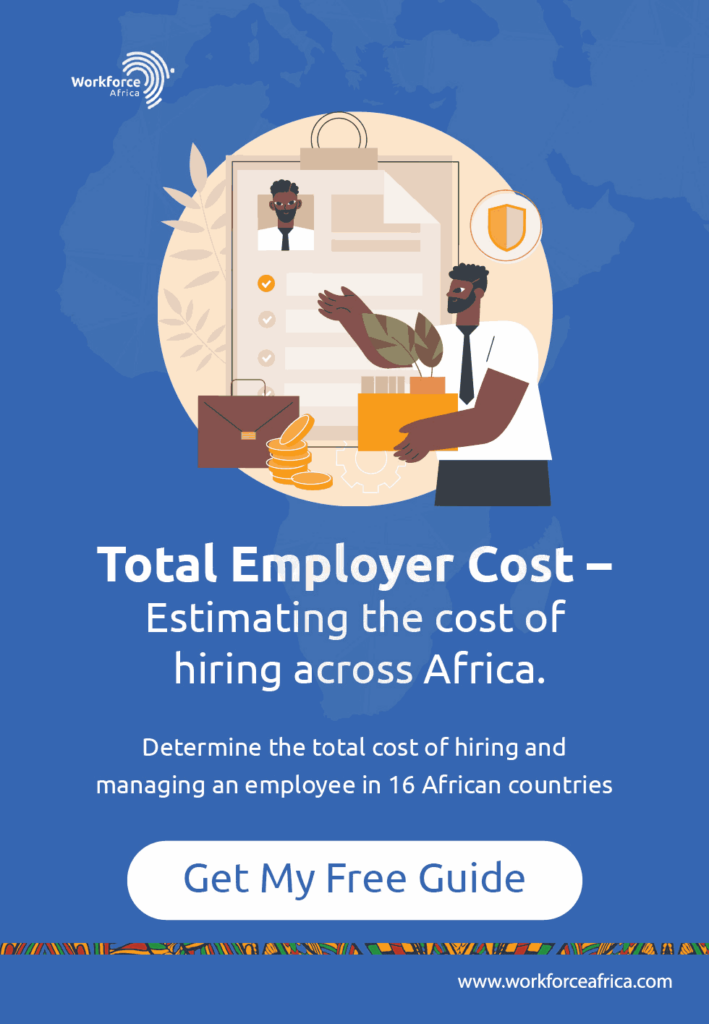
This Customer Service Week, we celebrate you — our clients. Your trust, feedback, and partnership drive everything we do. Thank you for being at the core of our mission.

The rise of remote work offers employees newfound freedom yet poses a fundamental challenge: how can global companies compensate their African remote workers equitably?
This article delves into calculating compensation for remote employees and providing crucial insights for optimising remote workforce compensation.
Since the pandemic started, remote working has become the norm for the African youthful population.
Global firms are adjusting their work practices to align with this prevailing trend of leveraging African talent to drive business growth.
Power connections and internet access are the notable improvements across the continent, contributing to the flourishing remote work scene. However, adapting to remote work poses the question of how to appropriately pay remote workers.
Whether you manage a remote team in Africa or plan to expand to Africa, it is imperative to establish an efficient compensation process for your remote workforce.
Compensation for remote employees in Africa presents greater complexity compared to traditional office settings.
Hence, ensuring accuracy in all aspects is crucial for global firms to maintain employee satisfaction and foster business growth. Additionally, compliance with tax and compensation strategy is essential.
Given these considerations, acquiring knowledge about workers compensation for remote employees Africa and outsourcing this activity to a payroll service provider in Africa is imperative.
Compensation for remote employees extends beyond monthly salaries, encompassing various factors such as skills, location, and performance.
Payment methods vary, including hourly wages, daily rates, and commission-based structures.
Both direct (cash-based) and indirect (non-monetary) compensations play crucial roles, offering bonuses, wages, flexible time off, training opportunities, and performance recognition.
Choosing the right compensation package is pivotal for business owners, as it enhances the ability to attract and retain top talent.
Here are six types of compensation to analyze:
Recommended Post: A 4-Step Process for Creating a Total Rewards Strategy for Employees
The following factors should be examined when determining compensation for remote work:
It is estimated that by 2025, 70% of the workforce will work remotely to some extent. Despite this trend, many companies continue to grapple with the challenge of effectively remote employees' compensation.
Moreover, according to a Payscale report, employees who perceive themselves as underpaid are 49.7% more likely to seek alternative employment opportunities than those who feel adequately compensated or receive salaries as remote employees above the market rate.
However, establishing equitable compensation becomes challenging when hiring remotely.
Employers' challenges when determining the payment method for remote workers are:
Establishing appropriate pay scales
Compensation for remote employees is crucial and must be accurate, but limited market data makes it challenging to decide on the right salary.
Additionally, maintaining pay parity between remote and non-remote employees performing the same tasks poses a significant challenge.
Some employers hesitate to make compensation decisions, fearing that employees in specific locations may command higher salaries regardless of their qualifications or experience.
Determining the currency for remote employee payment
While most countries' labour laws mandate paying remote employees in the local currency, this requirement poses challenges due to the unpredictable nature of the foreign exchange market.
Currency fluctuations can lead to unexpected increases or decreases in value, often resulting in additional costs for the employer.
Employers may specify alternative currencies in their contracts to mitigate this risk or establish a fixed exchange rate to promote stability.
Other challenges are
Compensating your remote workers in Africa presents greater complexity. Establishing a local entity may seem necessary to ensure compliant payment to staff.
This endeavour can be highly time-consuming, particularly when hiring remote workers from multiple African countries. Given this intricate nature, it is necessary and strategic to consider outsourcing this service to solve their remote payroll challenges.
However, misclassifying an employee as a contractor constitutes non-compliance and can result in severe penalties from local authorities.
Navigating these offshoring complexities while staying compliant is leveraging a firm like Workforce Africa. They assume the employer’s role for your selected talent across Africa, eliminating the need for you to set up an entity.
While Workforce Africa is the employer, the remote workers are assigned to the company to carry out assigned tasks.
In addition to employing your remote talents, Workforce Africa manages their compensation compliantly following local regulations and customs, allowing you to concentrate on other critical activities for your business growth.
Suggested post: 5 Compliance Mistakes to Avoid When Expanding Into Africa
Africa is filled with top talent that global businesses can use to drive success and growth. And since the workforce drives the company's success, you must ensure that your remote employees are content.
Timely and convenient compensation will efficiently secure employee satisfaction. If you plan to set up a remote team in Africa, contact Workforce Africa to help hire the right employees and compensate them in compliance with the law.